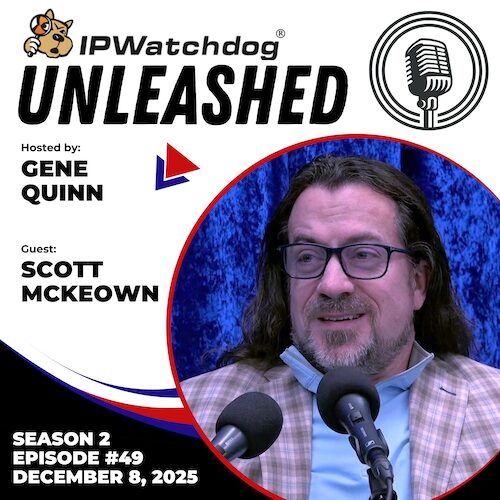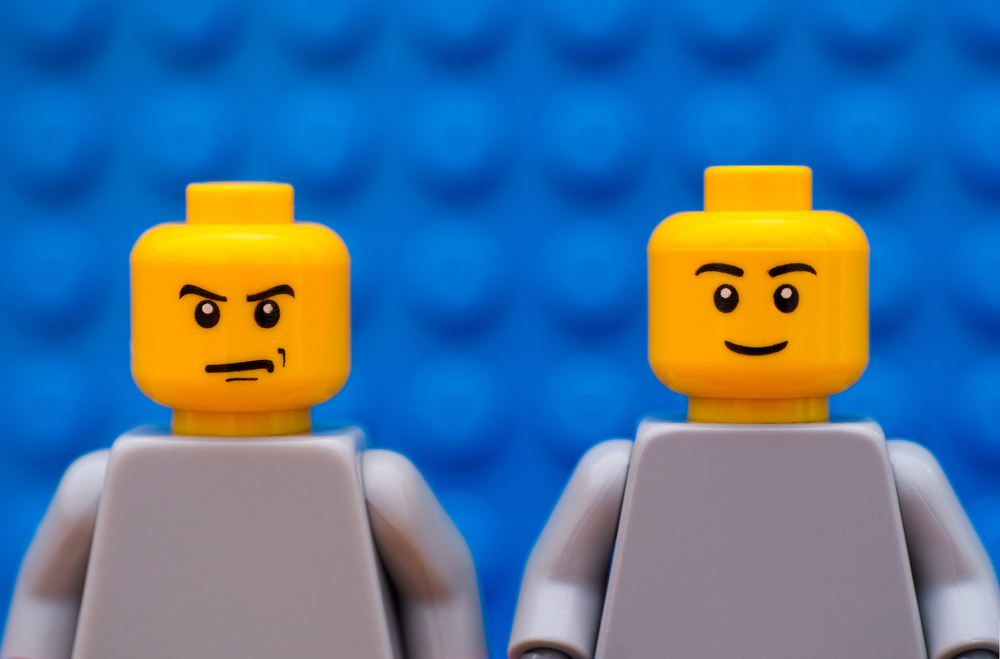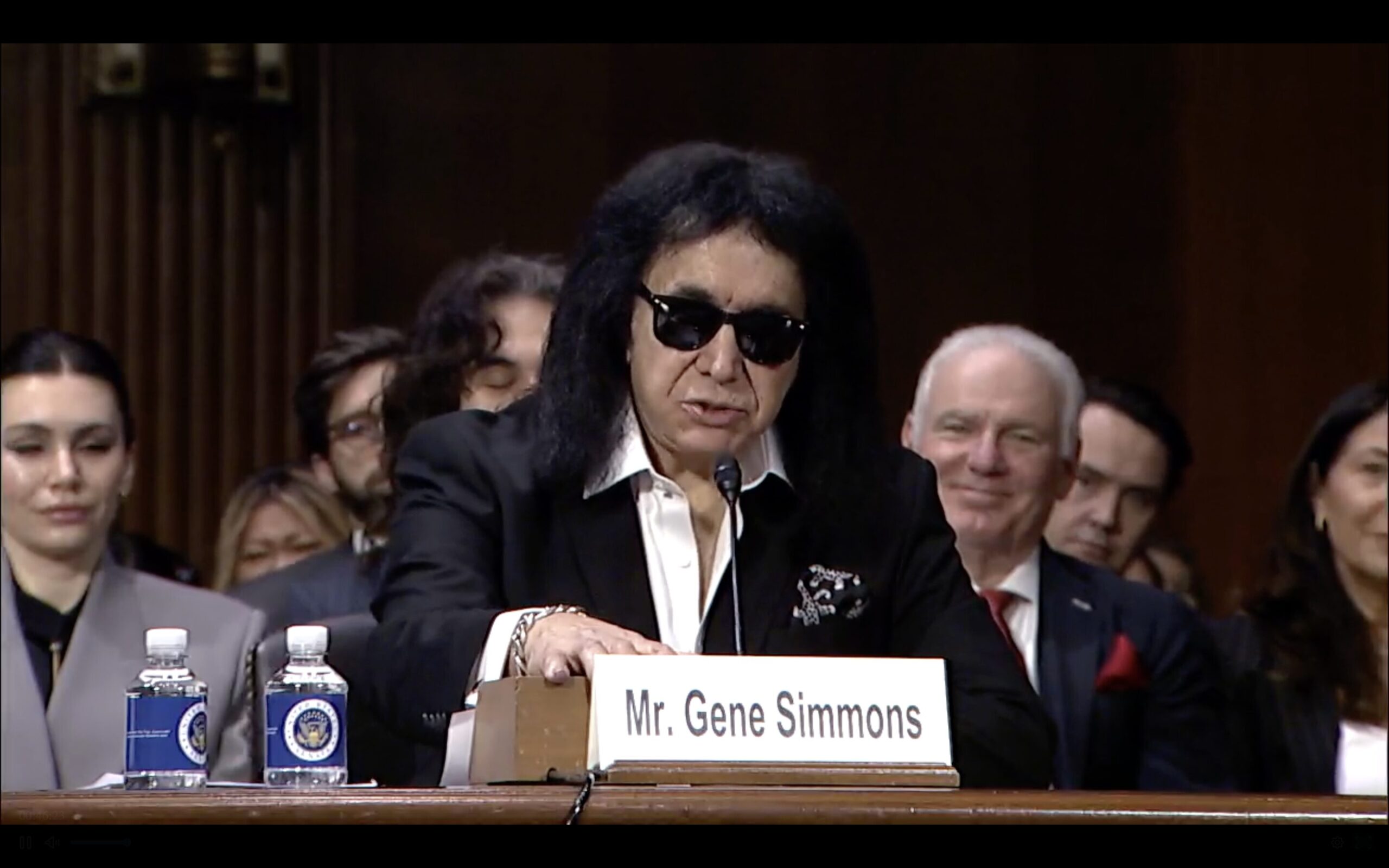“[The] ‘U.S. patent system is clearly in distress’ and ‘has been subject to a series of shocks that have resulted in a system that …does not create the proper incentive structure to allow us to compete with China effectively.’” – Innovation Alliance letter
 On January 11, Brian Pomper, Executive Director of the Innovation Alliance, sent a letter to President-elect Biden and Vice President-elect Harris urging support for strong patent rights and outlining Innovation Alliance’s recommendations with respect to the U.S. patent system and the U.S. Patent and Trademark Office (USPTO). The letter emphasized the importance of a strong patent system that incentivizes technological advancement in order to effectively compete with China and explained that the current system is in distress and strong leadership is needed.
On January 11, Brian Pomper, Executive Director of the Innovation Alliance, sent a letter to President-elect Biden and Vice President-elect Harris urging support for strong patent rights and outlining Innovation Alliance’s recommendations with respect to the U.S. patent system and the U.S. Patent and Trademark Office (USPTO). The letter emphasized the importance of a strong patent system that incentivizes technological advancement in order to effectively compete with China and explained that the current system is in distress and strong leadership is needed.
Focus on Competition with China
The Innovation Alliance stressed that the Biden Administration should focus on what is needed to meet the challenges presented by foreign competitors, such as China. Calling China a “technological powerhouse,” the letter noted that China has made it “abundantly clear it intends to dominate the economy of the future by focusing on 5G, artificial intelligence, semiconductors, aerospace, biotechnology, and other critical emerging technological areas.” It further noted that the U.S. must have the right policies in place to encourage long-term private investment into such critical emerging technological areas in order to meet the challenge presented by China and other competitors.
U.S. Patent System in Distress
The letter also explained the Alliance’s view that the “U.S. patent system is clearly in distress” and “has been subject to a series of shocks that have resulted in a system that …does not create the proper incentive structure to allow us to compete with China effectively.” Pomper noted that the Supreme Court’s decision in eBay Inc. v. MercExchange, LLC has made it “very difficult for many patent holders to secure an injunction order blocking proven, ongoing patent infringement” and has opened the door to “predatory infringement,” i.e. a practice wherein large incumbent companies accused of infringement “continue to infringe while dragging out the litigation and challenging the patent using the post-grant challenge mechanisms created in the America Invents Act in 2011.” Due to the degradation of U.S. patent rights, many patent holders are now able to obtain better patent protection overseas than they are in the United States.
Pomper also discussed the Innovation Alliance’s view that “a series of Supreme Court decisions have confused the state of the law of patent eligibility under Section 101 of the Patent Act such that inventors have little predictability on what inventions are patentable, resulting in the invalidation of thousands of patents in the fields of information technology, software, and life sciences.” The letter cited a 2017 research paper titled “Turning Gold to Lead: How Patent Eligibility Doctrine is Undermining U.S. Leadership in Innovation” that discusses ”how Supreme Court decisions during the last decade have put the United States at a global disadvantage.”
Pomper concluded by encouraging the Biden Administration to support the STRONGER Patents Act, which was originally developed by Senator Chris Coons to “restore much needed balance to the U.S. patent system and predictability for American innovators and entrepreneurs,” and to choose a USPTO Director who understands the innovation ecosystem and “strives to make that ecosystem work to maximize technological advancement.”

![[IPWatchdog Logo]](https://ipwatchdog.com/wp-content/themes/IPWatchdog%20-%202023/assets/images/temp/logo-small@2x.png)

![[[Advertisement]]](https://ipwatchdog.com/wp-content/uploads/2025/12/LIVE-2026-banner-early-bird-1500x500-1.jpg)
![[Advertisement]](https://ipwatchdog.com/wp-content/uploads/2025/11/Juristat-Ad-Firm-Cost-Management-Nov-18-Dec-31-2025-Animated-Varsity-Ad-final.gif)
![[Advertisement]](https://ipwatchdog.com/wp-content/uploads/2025/11/PTAB-Masters-2026-sidebar-early-bird-700x500-1.jpg)
![[Advertisement]](https://ipwatchdog.com/wp-content/uploads/2025/12/LIVE-2026-sidebar-early-bird-new-700x500-1.jpg)







![[Advertisement]](https://ipwatchdog.com/wp-content/uploads/2021/12/WEBINAR-336-x-280-px.png)
![[Advertisement]](https://ipwatchdog.com/wp-content/uploads/2021/12/Ad-4-The-Invent-Patent-System™.png)






Join the Discussion
24 comments so far.
Anon
January 22, 2021 04:53 pmPatent system and patent bargain are distinctly different things — you have been involved in this area for how many decades and cannot tell the difference….?
This only gets worse for you.
Much worse.
Anon
January 22, 2021 04:52 pmPatent system and patent bargain are distinctly different things — you have been involved in this area for how many decades and cannot tell the difference….?
This only gets worse for you.
Anon
January 22, 2021 04:51 pmI did no such thing as “airily” dismiss.
I dismissed the specific notion of Quid Pro Quo.
You are engaging in a logical fallacy by attempting to mischaracterize my point.
Move the goal posts back to Quid Pro Quo and stay on point, without attempting to misconstrue my actual point with this nonsense about “patent system” (that never was the item that I said was your fallacy).
MaxDrei
January 22, 2021 12:27 pmTo cite Wikipedia is a non-sequitur? No. In cavalier fashion, you airily dismiss what I wrote as a “fallacy”. My reply was that Wikipedia defines “patent system” exactly as I do.
Now I know that Wikipedia isn’t exactly the fount of all wisdom. But to dismiss its own unequivocal definition of the patent bargain as a “fallacy” is absurd, anon. People who consult Wikipedia do not dismiss what they find there as fallacies, You, not me, are the one with their eyes clenched shut.
Anon
January 22, 2021 10:51 am… checking out “patent” in Wikipedia is a complete non sequitur to our discussion of the differences in Quid Pro Quo.
That you might think it pertinent merely shows how out of touch you are and out of focus on that very real difference.
Anon
January 22, 2021 08:54 amYour statement though is clearly not accurate. See post 15.
There is abundantly clear difference between “must publish” (whether or not rights might be granted for other legal tests) and “publish in exchange for legal rights” AND those other legal tests being met.
You may choose to clench tight your eyes to this very real difference, but that difference is not going to go away.
MaxDrei
January 22, 2021 08:08 amSimilarly, the act of repeating over and over that a statement is a “fallacy” doesn’t turn that accurate statement into a “fallacy”.
Check out “patent” in Wikipedia. The very first sentence reads:
“A patent is a form of intellectual property that gives its owner the legal right to exclude others from making, using, or selling an invention for a limited period of years in exchange for publishing an enabling public disclosure of the invention.”
,
Anon
January 22, 2021 07:16 am“The Quid pro Quo is fundamentally the same in every jurisdiction.”
Repeating a fallacy will not change the fallacy into a fact.
MaxDrei
January 22, 2021 03:59 amThe Quid pro Quo is fundamentally the same in every jurisdiction. If the publication fails to enable, there is no “consideration” for the patent bargain.
The differences from jurisdiction to jurisdiction lie only in administrative detail notably the timing of the inventor’s publication, which is the pre-condition for their enjoyment of exclusive rights.
Anon
January 21, 2021 05:36 pm“The so-called Quid pro Quo is the same in every jurisdiction.”
This is most decidedly false.
The US Quid Pro Quo is exchange of legal rights for publication (modified for international concerns, but still achievable with the non-publication route).
Other jurisdictions provide a Quid Pro Quo of a mere chance at being examined in exchanged for publication.
Your “standing on the shoulders” misses – and not by a little.
MaxDrei
January 21, 2021 11:30 amMy comments are not specific to any particular jurisdiction but are intrinsic to any patent system. The so-called Quid pro Quo is the same in every jurisdiction.
Europe wrote for itself a completely new patent statute, the EPC, in 1973. Those who wrote it drew inspiration from, and stood on the shoulders of, giants (including those who created the patent law of the USA). These days, the EPC has become the benchmark, against which all other patent statutes are judged.
Anon
January 21, 2021 08:25 amHow do I come to that idea?
Your response immediately above that only provides those avenues.
Your addition here is ill-fitted to what examination and patent grant mean. You seek to make a mere assertion a grounds for removing our Sovereign’s choice of presence and level of presumption of validity. You insert your conclusion and parade of horribles as the starting point (an error in your logic). Examination — no matter how ‘difficult’ you want to label it, is to be full and proper BEFORE grant because that is exactly the job of the examiner.
If you want to assert a premise that PART of that examination cannot be done, then your “beef” is more than merely “bad patents,” because ALL patents then fall to the systematic issue you want to insert.
As I noted, YOUR path leads to the abuse of monied and established powers asserting “bad” post grant (and without the protection of what ‘grant’ means) on a very uneven playing field.
You seem — and have seemed for what must be at least a decade now — completely oblivious to “abuse” from non-innovation competition seeking monied and established interests and instead hawk their propaganda in the “Oh N0es Patent Tr011” K00l-Aid narrative,
MaxDrei
January 21, 2021 03:42 amNo. How do you come to that idea. If (for example) it turns out that the disclosure in the patent specification is insufficient to put the claimed subject matter into effect then the patent belongs in the category “bad” (because it is closing off technology to the public without fulfilling its part of the “patent bargain: exclusive rights in return for an enabling disclosure). The thing is though, the PTO is ill-equipped by itself, ex Parte, to decide whether the disclosure is enabling/sufficient. There has to be inter Partes mechanism, speedy and at proportionate cost, to rule on patentability/validity. Otherwise, the patent system amounts to an intolerable and unfair restraint of trade, easily abused by extortionists.
Anon
January 20, 2021 07:15 pmSo, you would rely solely on prior art for your defining attribute, eh?
MaxDrei
January 20, 2021 12:43 pmWhat it means? Judge Learned Hand it was, wasn’t it, who averred that a bad patent takes away from the public something it already had. When a claim lacks novelty, it is re-patenting the state of the art. The word “obvious” comes from the Latin ob Via, meaning lying in the way. A bad patent, an obvious claim, is a roadblock to technical progress.
Anon
January 20, 2021 10:53 amMaxDrei,
Your view opens the lid to Pandora’s box as to what it means for a patent to be a “bad patent.”
MaxDrei
January 20, 2021 03:05 amJosh, at #5 you and I agree about enforcement of the good patents, speedily and economically, so the system works just as powerfully for impecunious patent holders as for bullying global titans.
But that’s only half the picture. Innovation can flourish only if the bad patents are swept away, speedily and economically, out of the hands of their bullying blackmailing owners.
Valuationguy
January 19, 2021 08:57 amConsidering that California House Democrats control 5 of 11 of the majorities’ seats on the House Subcommittee overseeing Intellectual Property…..including Google’s personal Congressional rep (Zoe Loftgren)…I fully expect a reversal of many of the reforms that Iancu tried to inact to even out of the extremely tilted playing field introduced over PTO Director Lee’s tenure (as Google’s personal patent lawyer in the patent office).
It will be “interesting” to see what ties the new PTO Director has to Silicon Valley….as those companies cash in on their campaign “contributions” to Biden (via active censorship).
Angela Piedra Hernandez
January 18, 2021 03:45 pmAt least the US has a Supreme Court, not like the EPO operating in international waters, without any Supreme Court on top.
Josh Malone
January 18, 2021 02:11 pmMaxdDrei, obtaining patents is not the correct metric. Reliabiy using them to evict trespassers and collect damages is the primary concern.
Anon
January 18, 2021 06:12 amWith all due respect, MaxDrei, “The trick is to have all of the former and none of the latter.” is simply false.
Maybe pick up a book on the study of innovation.
Realize that “being blocked” is one heck of a mother, and as they say, mother is the necessity of invention.
MaxDrei
January 18, 2021 01:24 amLee, don’t be too pessimistic. See the Link below, to a case featured this morning on a blog about cases at the EPO. The Board of Appeal just reversed a decision to refuse an application. The patent family shows 3 patents already granted by the USPTO but none anywhere else in the world.
Mind you though, Applicant is Google. Wonder how the family member in China will fare.
http://justpatentlaw.blogspot.com/2021/01/t-238817-predictive-search-results.html
MaxDrei
January 18, 2021 01:11 amWell, I think pretty much everybody will support:
“strives to make that ecosystem work to maximize technological advancement.”
It’s just that learned opinions of experts in the field differ on how that vital task is best accomplished. As somebody once observed “Everybody has an agenda”.
Let’s just hope that the outcome is not determined by pure lobbying power but, rather, by the persuasiveness of the arguments.
Patents can nurture technological progress but they can also block it. The trick is to have all of the former and none of the latter. It’s not at all an easy trick to pull off. There is no quick and simple fix to the problem how to enforce good patents fast and economically while expunging bad patents from the Register speedily and economically. That’s where Europe and China routinely do better than the USA. Ask those who know, how do they do that.
Jason’s Lee
January 17, 2021 01:36 pmThe patent system in America is dead, key reason major patent inventors are getting their patents registered in China and Germany. Biden will do as FAANG tells him to do and that is to keep patents weak so they can steal IPs at will with out worrying about major penalties. What was ones the envy of the world has not been brought down by the companies that benefited from its patent laws. Onward and upward we go to the EU And Asia the new Patent protectors.